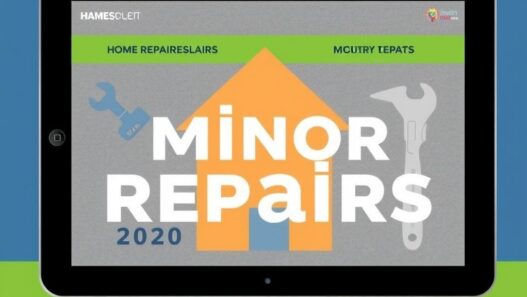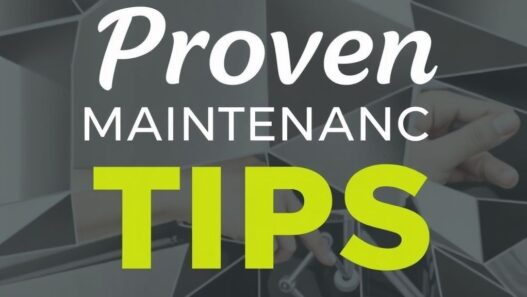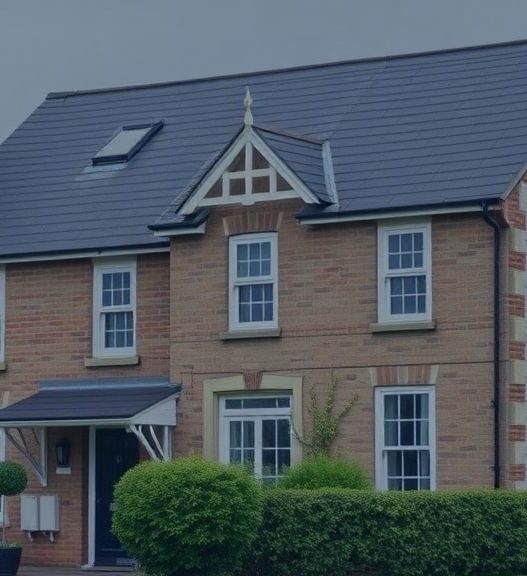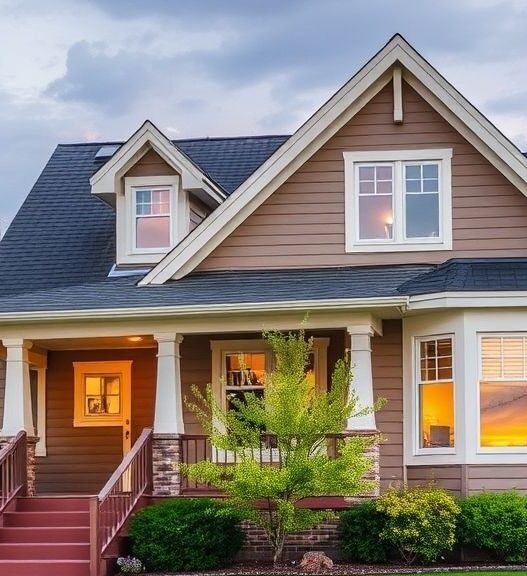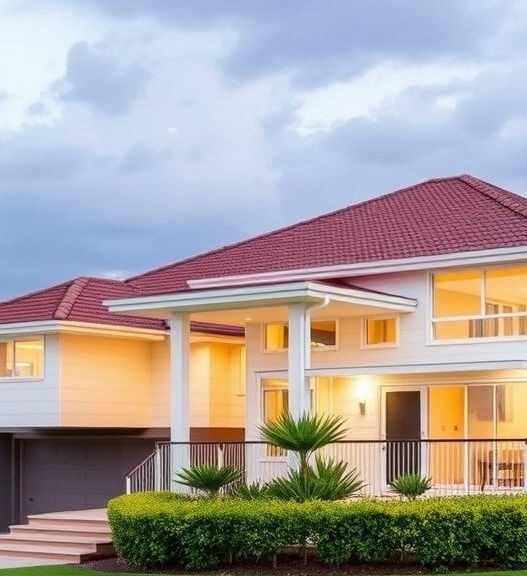Understanding your home’s true worth is crucial. This knowledge empowers you as a homeowner. It helps you make smart decisions about your investment. Knowing your property value is more than just a number. It reflects your financial health and future potential. This guide will help you navigate the complexities of assessing and enhancing your home’s worth. We focus specifically on the dynamic real estate market in Fort Worth. You will learn practical steps to understand and boost your home’s appeal. Let’s explore how to maximize your investment in the vibrant city of Fort Worth.
Planning
Effective planning is the first step. It helps you understand your home’s current standing. This stage involves careful research and thoughtful consideration. You need to gather relevant information. This will inform your strategy for improving your property value. A well-thought-out plan saves you time and money. It also ensures your efforts are focused and effective. Consider all aspects before making any major changes. This proactive approach sets you up for success. It helps you achieve your financial goals in Fort Worth.
Key Considerations
-
Location Analysis: Your home’s location is paramount. It significantly impacts its overall property value. Research local amenities like schools and parks. Look at proximity to major highways and employment centers. Desirable neighborhoods often command higher prices. Understand the specific appeal of your Fort Worth area. This knowledge helps you highlight your home’s best features. It also guides potential improvements.
-
Market Trends Research: Stay updated on current real estate trends. Look at recent sales data in your Fort Worth neighborhood. Are prices rising or falling? What is the average time homes spend on the market? Understanding these trends helps you set realistic expectations. It also informs your timing for any potential sale. Market conditions directly influence your home’s worth. Always check the latest reports.
-
Property Condition Assessment: Honestly evaluate your home’s current state. Walk through every room and inspect the exterior. Note any areas needing repair or updates. A well-maintained home always has higher property value. Consider the age of major systems like HVAC and roofing. These factors play a big role in buyer perception. Address any deferred maintenance promptly.
-
Comparable Sales Data: Look at what similar homes have sold for recently. These are called “comparables” or “comps.” Find homes with similar size, age, and features. Focus on sales within the last six months. This data provides a strong benchmark for your home’s value. It helps you understand the market’s current appraisal. This step is critical for accurate valuation.
-
Future Development Impact: Research any planned developments nearby. New shopping centers or public transport lines can boost value. Conversely, new industrial zones might lower it. Local zoning changes also affect property value. Stay informed about city plans for Fort Worth. These future changes can significantly alter your home’s long-term worth. Proactive research is always beneficial.
Cost Analysis
Understanding the financial implications is vital. You need to weigh potential improvement costs. Compare these costs against the expected increase in property value. Not all renovations offer the same return on investment. Some projects provide a much better boost to your home’s worth. This section helps you make informed financial decisions. It ensures your investments are smart and strategic. Always consider your budget carefully. Prioritize improvements that offer the best value.
Price Comparison
Here is a general comparison of common home improvements. It shows their estimated cost ranges. It also indicates their potential return on investment (ROI). These figures are estimates for the Fort Worth area. Actual costs may vary based on materials and labor. Always get multiple quotes for any project. This table helps you prioritize your renovation budget effectively.
| Improvement Type | Estimated Cost Range (Fort Worth) | Average ROI (%) | Impact on Property Value |
|---|---|---|---|
| Minor Bathroom Remodel | $10,000 – $25,000 | 70% – 80% | Significant positive impact |
| Kitchen Refresh (Minor) | $15,000 – $40,000 | 60% – 75% | Strong positive impact |
| New Roof Installation | $8,000 – $25,000 | 60% – 70% | Essential for structural integrity, good ROI |
| HVAC System Upgrade | $5,000 – $12,000 | 50% – 60% | Boosts energy efficiency, comfort |
| Curb Appeal Enhancements | $2,000 – $10,000 | 75% – 100% | Excellent first impression, high ROI |
| Basement Finishing | $30,000 – $75,000 | 50% – 70% | Adds living space, good ROI |
As you can see, some improvements offer better returns. Focus on projects that appeal to a broad range of buyers. Updates to kitchens and bathrooms are often very popular. Enhancing curb appeal is also a cost-effective strategy. These improvements directly boost your home’s market appeal. They help increase your overall property value. Always consider your budget and goals. Choose projects wisely for the best outcome.
Step-by-Step Guide
Improving your home’s value does not have to be overwhelming. You can follow a clear, actionable plan. This section provides a simple, step-by-step guide. It helps you tackle projects effectively. Each step is designed to be straightforward. You can achieve significant results with careful execution. Remember to prioritize tasks based on impact and budget. This systematic approach ensures efficiency. It helps you maximize your investment in your Fort Worth home.
DIY Instructions
Follow these steps to enhance your home’s appeal and value:
-
Declutter and Depersonalize: Start by removing excess items. Clear countertops and shelves. Store away personal photos and memorabilia. This helps potential buyers envision themselves in the space. A clean, uncluttered home feels more spacious. It also appears better maintained. This simple step costs nothing but time.
-
Deep Clean Every Room: A sparkling clean home makes a huge difference. Scrub all surfaces, floors, and appliances. Pay attention to often-missed areas like baseboards. Clean windows inside and out for maximum light. A fresh, clean scent also creates a positive impression. This effort directly impacts buyer perception.
-
Address Minor Repairs: Fix leaky faucets and squeaky doors. Patch small holes in walls. Replace broken light fixtures. These small issues can accumulate. They make a home seem poorly maintained. Addressing them shows attention to detail. It signals a well-cared-for property. This boosts overall appeal.
-
Enhance Curb Appeal: First impressions are critical. Mow the lawn and trim hedges. Plant colorful flowers near the entrance. Power wash the exterior and walkways. Repaint your front door for a fresh look. These efforts invite buyers inside. They significantly boost your home’s initial appeal.
-
Update Lighting Fixtures: Old or dim lighting can make rooms feel dated. Replace outdated fixtures with modern ones. Use brighter, energy-efficient LED bulbs. Good lighting makes spaces feel larger and more inviting. It highlights your home’s best features. This is a relatively inexpensive upgrade.
-
Paint Walls with Neutral Colors: A fresh coat of paint works wonders. Choose neutral colors like light grays or off-whites. These colors appeal to a wider audience. They also make rooms feel brighter and more spacious. Neutral walls allow buyers to imagine their own decor. This is a high-impact, low-cost improvement.
-
Stage Key Rooms: Arrange furniture to highlight space and flow. Focus on the living room, master bedroom, and kitchen. Remove bulky items that make rooms feel small. Add simple, tasteful decor elements. Professional staging can significantly increase buyer interest. It helps showcase your home’s full potential.
These DIY steps are highly effective. They can significantly improve your home’s marketability. They also contribute positively to its overall property value. You can complete many of these tasks yourself. This saves on labor costs. Focus on making your home as appealing as possible. A well-prepared home sells faster and for more money. This is especially true in a competitive market like Fort Worth.
Maintenance Tips
Maintaining your home is an ongoing process. It is not a one-time event. Regular care protects your investment. It helps preserve your home’s property value over time. Neglecting maintenance can lead to costly repairs later. It can also diminish your home’s appeal. Proactive maintenance saves you money in the long run. It ensures your home remains attractive and functional. This section provides essential tips for long-term care. These practices will keep your Fort Worth home in top condition.
Long-Term Care
-
Regular Inspections: Conduct seasonal checks of your home. Look for signs of wear and tear. Inspect the roof, gutters, and foundation. Check for leaks in plumbing and around windows. Early detection prevents minor issues from becoming major problems. This proactive approach saves significant repair costs. It helps maintain your home’s structural integrity.
-
Preventative Maintenance: Schedule routine servicing for major systems. Get your HVAC system checked twice a year. Clean your gutters regularly to prevent water damage. Test smoke detectors and carbon monoxide alarms. Change air filters monthly. These small tasks prevent breakdowns. They extend the lifespan of your home’s components.
-
Maintain Curb Appeal: Keep your landscaping neat and tidy. Trim trees and shrubs regularly. Weed garden beds and replenish mulch. Power wash your home’s exterior annually. A well-maintained exterior always looks inviting. It signals a well-cared-for property. This consistent effort protects your home’s first impression.
-
Energy Efficiency Upgrades: Consider upgrading to energy-efficient appliances. Install smart thermostats to optimize heating and cooling. Seal drafts around windows and doors. Add insulation to your attic. These upgrades reduce utility bills. They also appeal to environmentally conscious buyers. This boosts your home’s modern appeal.
-
Address Wear and Tear Promptly: Don’t let small issues linger. Repair cracked tiles or peeling paint immediately. Fix loose railings or broken fences. Attend to any signs of water damage quickly. Prompt repairs prevent further deterioration. They maintain your home’s overall condition. This vigilance helps preserve your property value.
Conclusion
Understanding and enhancing your Fort Worth home’s property value is a rewarding endeavor. It requires careful planning and consistent effort. You have learned about key considerations for valuation. We explored smart renovation choices for better returns. You now have a clear step-by-step guide for DIY improvements. Finally, we covered essential long-term maintenance tips. Remember, your home is a significant investment. Proactive management ensures its continued appreciation. By applying these strategies, you can confidently navigate the Fort Worth real estate market. You will maximize your home’s appeal and financial worth. Take these steps to secure your investment’s future. Your efforts will truly pay off.





